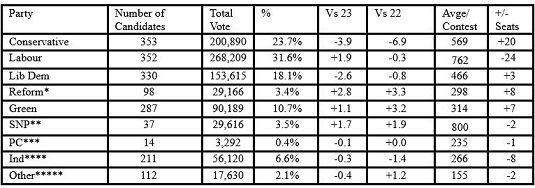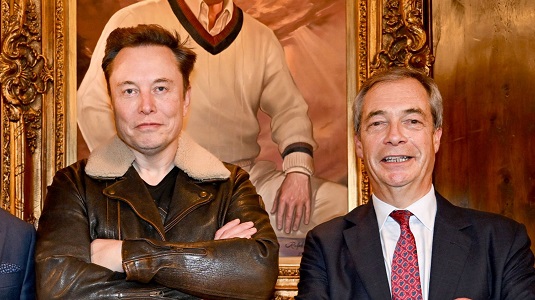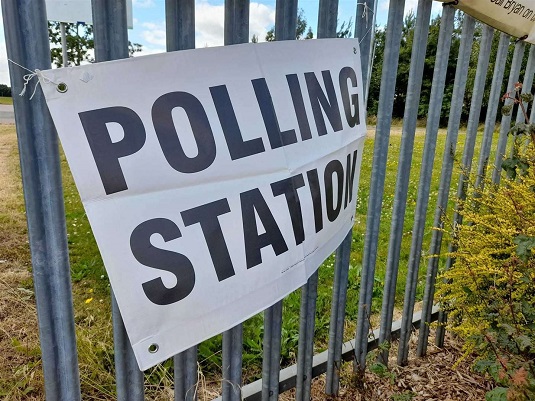This quarter 231,558 votes were cast in 124 local authority contests. All percentages are rounded to the nearest single decimal place. 51 council seats changed hands. For comparison you can view Quarter Three's results here. And yes, the table is rather ugly.
|
Party
|
Number of Candidates
|
Total Vote
|
%
|
+/- Q3
|
+/- Q4 23
|
Avge/
Contest
|
Seats
|
|
Con
|
118
|
57,449
|
24.8%
|
+4.6
|
+0.6
|
487
|
+20
|
|
Lab
|
111
|
54,567
|
23.6%
|
-14.5
|
-1.3
|
492
|
-21
|
|
Lib Dem
|
110
|
45,254
|
19.5%
|
+4.7
|
-4.9
|
411
|
+2
|
|
Ref*
|
63
|
19,686
|
8.5%
|
+6.0
|
+7.9
|
312
|
+7
|
|
Grn
|
95
|
20,133
|
8.7%
|
-4.4
|
-2.8
|
212
|
+2
|
|
SNP**
|
22
|
18,020
|
7.8%
|
+6.3
|
+6.4
|
819
|
-3
|
|
PC***
|
6
|
1,706
|
0.7%
|
+0.5
|
+0.5
|
284
|
0
|
|
Ind****
|
60
|
10,161
|
4.4%
|
-4.1
|
-3.6
|
169
|
-5
|
|
Oth*****
|
45
|
4,582
|
2.0%
|
+0.7
|
-2.7
|
102
|
-2
|
* Reform's comparison results are based on recomputing their tallies in Others over the last quarter/year
** There were 22 by-elections in Scotland
*** There were eight by-elections in Wales
**** There were nine Independent clashes
***** Others this quarter were Alba (239, 178, 118), British Unionist (241), Communist Party of Britain (23), Coventry Citizens Party (94), Heritage Party (61, 20, 11), Progressive Change (529), Propel (305), Scottish Family Party (83, 71, 53, 51, 25), Scottish Libertarian (15, 9), SDP (116, 33, 26, 12), Skegness Urba District Society (79), Socialist Party of Great Britain (22), Swanscombe & Greenhithe Residents' Association (395, 252), TUSC (327, 116, 76, 68, 56, 44, 35, 25, 18), UKIP (23, 11), Workers' Party (212, 143, 133, 80, 47, 40, 35, 32). The comparison figures from last year have been recomputed minus Reform's contribution.
The unprecedented becomes the precedented. No party has won such a huge parliamentary victory and seen their fortunes reverse as quickly. No party that has suffered an historic defeat has rebounded as rapidly. But these are what the numbers say. Political fortunes were going to turn against Labour at some point, and when they did the impact was always going to be disproprortionately felt at the level of council by-elections. Why? Because the age/turnout effect, i.e. the greater propensity to vote as one goes up the age range, is even more exacerbated for second order elections. And this is aggravated further by what looks like an across-the-board reduction in turnout since the general election. This matters because for the last 15 years the right have consolidated their support among older people, and when you consider how Labour expended its meagre political capital on a pointless attack on the elderly, you can see where their problems began. Caveats aside, it used to be the case that popular vote share tallies were simply effects of what was happening locally with some national overdetermination. Now, at least where the two main parties are concerned, the polls are resembling the by-elections.
Leaving aside the large SNP vote as an artefact of a greater number of Scottish by-elections than normal, the story of the quarter is the continued rise of Reform. The period underplays their potential strength because they have not stood in anywhere near as many seats as the other parties, and it's this spread of candidates that, at least for the Greens, in making them look better right now. Here the vote average is a good indicator of strength and this quarter we see that Reform is now fourth place in England and Wales, but did out-perform the Liberal Democrats in December. Unfortunately, thanks to the favourable media environment and Reform's slight age/turnout advantage over the other parties bar the Tories, if Nigel Farage can find enough candidates this rise is going to continue.
Image Credit

























